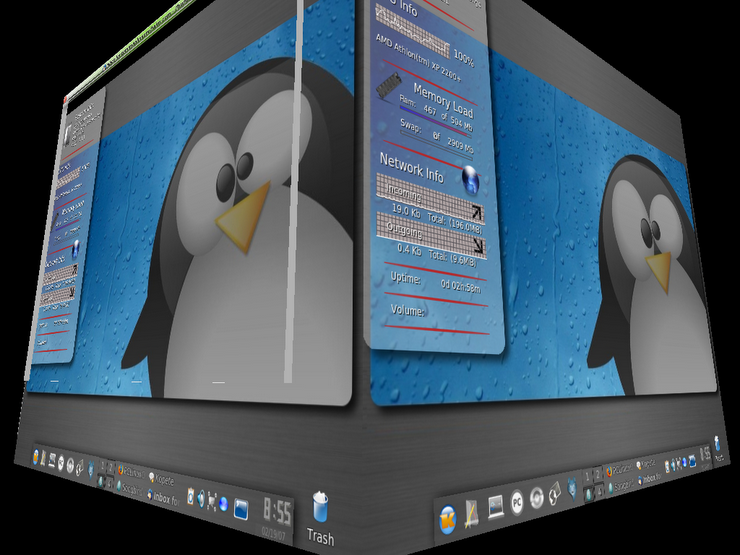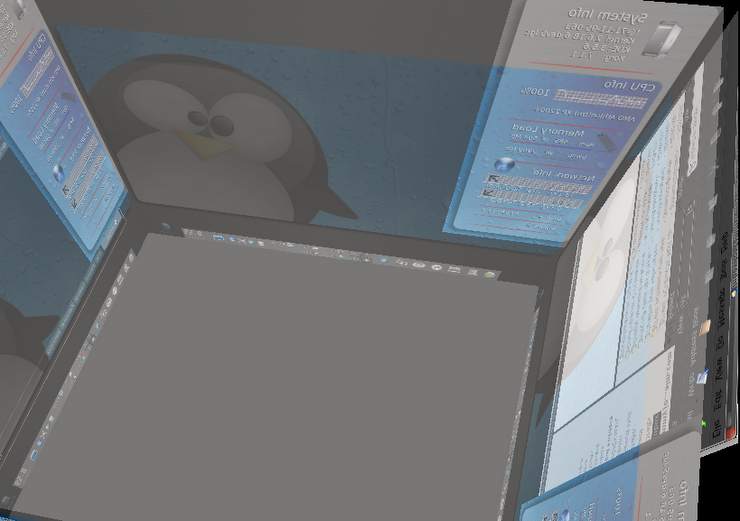How many of my readers enjoy listening to internet radio? Well if I am indication of what my readers are like then all of you do. I know that many of you haven't heard anything about this issue, which is why I feel obliged to inform you. Hopefully after reading this you will no longer be oblivious to the facts. What you do with the facts is entirely up to you.
Well it seems the RIAA is hard at work again, I guess they are bored with suing little old ladies and children for downloading mp3s. They have set their sights on our beloved net radio stations in hopes to increase their bottom line. These corporate greedy thugs think that we don't have a voice anymore. Hey, aren't we the reason they make a profit? How long will we let them control what we have a right to? I say we make them listen to us.
One thing I do is never buy any product they have. So no music for me that is DRM'ed, remember we talked about that eariler. That is one way to voice your opinion, and maybe the only voice they care to hear. The cash register. Remember that the next time you are at the music store in the mall on itunes or another mp3 site.
On March 2 2007 the Copyright Royalty Board or CRB, as we will call them, approved new rates that are so ridiculously high that most small radio stations would be in the red simply because of them. In other words their already small profit will quickly become a loss. Here are the new rates in PDF
Now that you know of this new rate increase, and the ramifications of it, what are you willing to do? What can you do? As an American you have elected officials that you can write and demand action. If enough people do then they will have to take action. You can find their contact info here
Protect your right to hear eclectic indepenent radio and discover new artists. Write Washington. They would love to hear from you, after all you are their constituants. They are there to serve the public and protect your rights. Pass the word to anyone you know that loves or makes music, get involved before we loose another choice.
I urge you to visit the following site and complete the petition there.Here is what our friends at http://savenetradio.org/ suggest. Tell your representative:
I do not support The Copyright Royalty Board's (CRB) March 2nd decision to substantially increase royalty rates. Not only will it impact my choices, but the Recording Industry Association of America's (RIAA) manipulation of these rates, and the CRB's indifference will hurt working artists, damage small record labels and force law abiding small webcasters, already paying a large portion of their revenue per month in royalties, out of business. This decision will also damage hundreds of small businesses providing goods and services to working artists, small record labels and small webcasters.
I respectfully ask that you evaluate the CRB decision and do whatever is necessary to establish a reasonable royalty rate for all the parties involved.
A bit from Neptune on the subject:
It was the early seventies, and we listened to something called AM radio. I remember my first AM radio. It was portable, a hand-me-down from a neighbor. It used vacuum tubes, required approximately eighty-five D-cell batteries, and weighed about 175 pounds. But it had a handle, and that made it officially portable. To this day my right arm is a half-inch longer from lugging that beast around. I'd turn it on, watch the tubes slowly start to glow (the service panel had been long lost), fiddle with the tuning till I got a station and listen. For about five minutes. Then the batteries would be dead and I'd have to save up for another eighty-five D-cells.
We were in a small town. On hot, dusty summer nights, we'd gather in the parking lot across from the Sinclair gas station, drink too many sodas, look at each other's cars and listen to the radio. Mostly we listened to KELI, AM 1430, out of the big city. They played the music we liked. But they also broadcast the news that mattered to us. The local school athletic scores. The places and faces that we knew, because we'd been there and seen them. Yes, there was national news, but it was almost an afterthought. Much of the content was local community. KELI for a while would send a staffer to the local drive-ins so that teenagers could request songs from Dan Kelly, one of the DJs there. All of the DJs were named Kelly - Bill Kelly, Dan Kelly, Don Kelly. No, not nepotism, just a gimmick. They never made it to our parking lot, but we listened anyway.
We were listening when Mazeppa and some friends dropped by the KELI studio one night, and things got, uhmmm informal. The DJ was fired the next day. Mazeppa, a local character better known as Gailard Sartain, went on to roles in TV and about fifty movies. His buddy, and cohort in crime, Teddy Jack Eddy, is better known as Gary Busey, of 'Lethal Weapon' fame. KELI was, in every sense, community radio. Our community.
But something happened. AM radio died. FM was the rising star on the radio horizon. But FM was more expensive. The broadcast equipment was more expensive. The licensing was more expensive. And FM didn't have the broadcast range, compared to AM, which meant fewer available listeners per station, so they had to adjust their business model accordingly. But it sounded better, and people began to tune in to the big FM stations more and more. There were technical solutions for AM, but there was big business behind FM, and the FCC famously dithered on such things as AM stereo, while the ratings dropped lower and lower.
I can hear you now, "AM's not dead, I've got AM in my car and I can hear AM stations now". Well, I can explain that. I lied. AM is not dead. It's worse. It's the undead. It is the walking corpse of what it used to be. As the margins between the advertising and the relentless pressure of increasingly onerous content fees became thinner and thinner, station after station folded, and were scooped up by big media corporations. It's now a vast soulless, featureless plain dominated by a handful of major media outlets. It's been sterilized and homogenized. You can drive to fifty different cities - and hear the same programming everywhere. Not surprisingly, under similar pressures, FM is little better.
So is this about nostalgia? Nope. I was just sneaking in a history lesson with a little candy. I'd like to fast-forward to the present. The present is the Internet. The bandwidth and technology of streaming media have come of age, and the flexibility of the Internet has redefined our concept of community. There are now a host of virtual communities, defined not by your physical location, but by your preferences, beliefs and interests. And the great news is - community radio is back.
You can't get in the broadcast radio game any more without heavy financial backing. Those days are gone. But the Internet has changed the playing field. It's brought democracy back. With a little bandwidth, and a few servers, it's possible to create your own radio station again. To broadcast to your own community on the Internet.
Yes, community radio is back. But it's got some big guns pointed at it. The RIAA has already been dipping into the pockets of the Internet broadcasters, much like the friendly guy who makes his weekly collections from the small business owners in Brooklyn. "You wouldn't want nuttin' bad should happen to your store, now, would ya?" Of course the RIAA doesn't call this extortion. They call it Royalty Rates. Sounds much friendlier.
So the webcasters have to pay. And currently, it's manageable, a percentage of their profits. But that's not enough for the RIAA. I've been reading some Hunter S. Thompson lately, so perhaps that's why the phrase, "greed-crazed vampire swine", springs to mind. But I won't use it. It's a disservice to greed-crazed vampire swine everywhere. These are the folks who just can't stand it if you're listening to something and they don't get a quarter out of your packet. And they really can't stand it if you're listening to content that they can't lay some dubious claim to - it means you're not eating their dog-food.
But that's OK. That's what bloated parasites do - they cheat the artists and they cheat the consumers, while producing nothing. We call that "value", or in this case, lack there of. And, as long as you've got a choice, they're entitled to operate that way.
Here's what's not OK. When the government rolls over and plays sock-puppet for the RIAA, they've abdicated their duty. And that's exactly what's happening again. The CRB, (Copyright Royalty Board) hos established a fee structure that would absolutely gut the webcast landscape. In short, you lose your choice. Once again, the independents are about to be crushed under corporate greed, backed up by government regulation. Once again, you're about to see your ability to tune in to the community radio of your choosing vanish.
When the government stops protecting our freedom to choose, when it acts solely for the benefit of big corporate interests, it's gone off track. And if we don't remember who our government works for, we've gone off track. It's our government. It's my government. It's your government. But only if you remind them from time to time. Now would be a good time to remind them.
I can't turn back time to the those long summer nights in the early seventies. I wouldn't if I could. But I'd hate to see history repeat itself. I'd hate to see us lose our freedom of choice. It doesn't have to happen. The same Internet that the RIAA wants to own will take you directly to your representatives. Let them know how you feel.
Thanks again Neptune. The extorsionist bit is priceless.
Thursday, March 15, 2007
Subscribe to:
Post Comments (Atom)




No comments:
Post a Comment